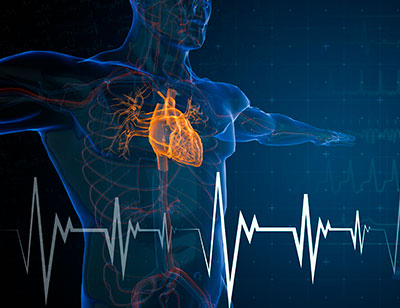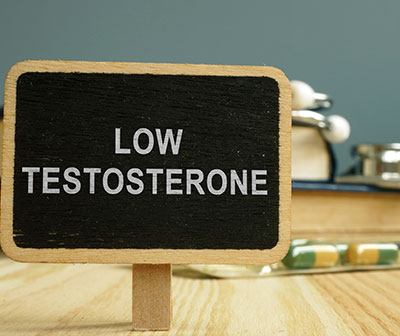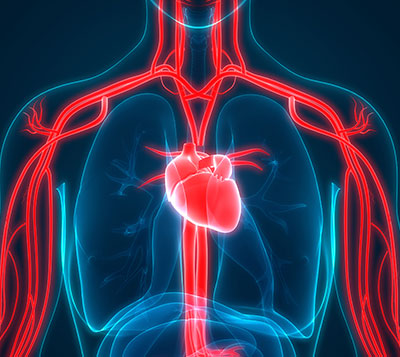Testosterone and Heart Health
Testosterone therapy does not increase your risk of developing cardiovascular disease, and in fact, testosterone has many benefits for heart health.
There was a time when it was believed that testosterone replacement therapy could increase a man’s risk of heart attack or of developing cardiovascular disease. These claims were based upon a largely flawed study from 2013 that purportedly linked the use of testosterone therapy with an increased risk of heart attacks. Despite the many problems with the study, it received a lot of media attention.
Since that study, there have been countless studies to the contrary, and we now can be quite confident in saying that not only does testosterone therapy not increase your risk of stroke or heart attack, but it can actually decrease your chances of such cardiovascular events.
Heart Disease and Other Cardiovascular Diseases
The American Heart Association (AHA) defines “heart disease” as coronary heart disease (including congestive heart failure and diseases of the arteries), hypertension, stroke, and sudden cardiac arrest.
According to AHA:
- “In 2016, Coronary Heart Disease was the leading cause (43.2%) of deaths attributable to cardiovascular disease in the US, followed by stroke (16.9%), High Blood Pressure (9.8%), Heart Failure (9.3%), diseases of the arteries (3.0%), and other cardiovascular diseases (17.7%).”
- “Cardiovascular disease (CVD) is the leading global cause of death, accounting for more than 17.6 million deaths per year in 2016, a number that is expected to grow to more than 23.6 million by 2030, according to a 2014 study.”
- “CVD and stroke accounted for 14% of total health expenditures in 2014-2015. This is more than any major diagnostic group.”
According to the CDC, “Heart disease is the leading cause of death for men, women, and people of most racial and ethnic groups in the United States. One person dies every 36 seconds in the United States from cardiovascular disease. [And], In the United States, someone has a heart attack every 40 seconds.”
Testosterone therapy does not increase your risk of heart attack or stroke.
Is There a Link Between Heart Disease and Low Testosterone?
There is definitely a link between low testosterone and heart disease. Men with low testosterone often develop a number of "metabolic conditions," all of which increase the risk of heart disease, heart attack, and stroke. Low testosterone decreases your ability to burn fat and build muscle. This often leads to obesity.
The links between being overweight and an increased risk of stroke or heart attack are well known. Men with low testosterone are also at a greater risk of developing insulin resistance and type II diabetes. Diabetes also increases your risk of cardiovascular disease.
A recent meta-analysis found that there is a link between low testosterone in men and an increased risk of developing heart disease. The review published in the Journal of Clinical Endocrinology & Metabolism showed significant evidence suggesting a connection between low testosterone levels and heart disease.
"When we reviewed the existing research into testosterone, and cardiovascular disease, a growing body of evidence suggested a connection between the two," study lead author Dr. Johannes Ruige of Ghent University Hospital in Belgium said in a journal news release.
Low testosterone increases your chances of developing heart disease or dying from a stroke or heart attack.
How Can Testosterone Improve Heart Health?
There is a growing body of evidence that suggests testosterone replacement therapy is good for your heart.
Testosterone has been shown to benefit heart health in many ways.
- It can reduce your risk of heart attack and stroke.
- It strengthens the heart muscle.
- It boosts metabolism.
- It helps you to build lean muscle.
- It lowers your risk of high blood pressure and diabetes.
- It provides more energy, which leads to more exercise, and a less sedentary lifestyle.
Does Testosterone Therapy Increase Your Risk of Heart Disease?
A 2015 study published by the world-renowned Mayo Clinic set the record straight on testosterone and the risk of heart disease or increased risk of a heart attack.
According to the study, published in the January 2015 edition of Mayo Clinic Proceedings, “evidence from research conducted around the world for several decades suggests a beneficial relationship between [testosterone] therapy and cardiovascular health.”
The lead researcher on this study was Dr. Abraham Morgentaler. Dr. Morgentaler is a well-known specialist in men’s health. Dr. Morgentaler published his first paper on testosterone in 1978. He has since become a recognized expert in the field and wrote the extremely popular book, Testosterone for Life in 2008.
This paper by Morgentaler was what is known as a “meta-analysis” It took a look at all of the studies on testosterone and the increased risk of cardiovascular disease between 1940 and 2014 and analyzed them in detail.
After intensively studying almost 75 years of published medical research, Dr. Morgentaler and his team found only four studies that seemed to indicate an increased risk of heart disease associated with testosterone replacement. However, they found "dozens of studies" that suggested just the opposite, that testosterone replacement can actually reduce the risk of cardiovascular (CV) disease and heart attack.
This led him to make only one inescapable conclusion – “In summary, there is no convincing evidence of increased CV risks with testosterone therapy. On the contrary, there appears to be a strong beneficial relationship between normal testosterone levels and CV health that has not yet been widely appreciated.”
What Does the Research Say About Testosterone Replacement and Cardiovascular Disease?
Despite an overabundance of evidence to the contrary, it has been said that testosterone replacement therapy could increase the risk of heart disease. Not only have many recent studies debunked this commonly held misconception, but the latest research also suggests that just the opposite is true – Testosterone Replacement can actually decrease a man’s risk of a heart attack.
The study, published in the European Heart Journal, found that increasing the testosterone levels in men with low testosterone who have suffered a heart attack helped to prevent a second heart attack or other cardiovascular issues.
This is a landmark study that involved nearly 90,000 male veterans. That sheer number makes the results of the study largely indisputable. The researchers split them into three groups: those that were given supplemental testosterone but not enough to return to normal levels, those who were returned to normal, and those who were left untreated and so remained with low-T.
The men were then followed over the next 5 to 6 years. The differences between the men who had been returned to normal testosterone and the other two groups were substantial. According to Dr. Rajat Baru, a cardiologist at Kansas City Veterans Affairs Medical Center, and one of the lead researchers on the project, “the men whose levels returned to normal were shown to have a 56 percent less risk of dying during the follow-up period and were 24 percent less likely to have a heart attack. Lastly, they were 36 percent less likely to have a stroke.”
A Swedish study of over 3,000 men with an average age of 75 linked low testosterone with an increased risk of peripheral artery disease, a form of atherosclerosis.
Hormone replacement has been used as a treatment for patients with heart failure. There have been studies that suggested that testosterone, when combined with growth hormone therapy, can be an effective treatment for heart failure.
The 2019 study concluded, “Our preliminary data suggest for the first time that combined replacement therapy with HGH and testosterone could be considered safe and therapeutic in heart failure patients with multiple hormone deficiencies, supporting the hypothesis that multiple hormone deficiencies syndrome can be considered as a novel and promising therapeutic target in heart failure.”
Testosterone therapy decreases your risk of heart disease.
Now that you know a bit more about the links between testosterone and heart health, why not contact us today, and find out more about the many life-changing benefits of testosterone replacement therapy.





